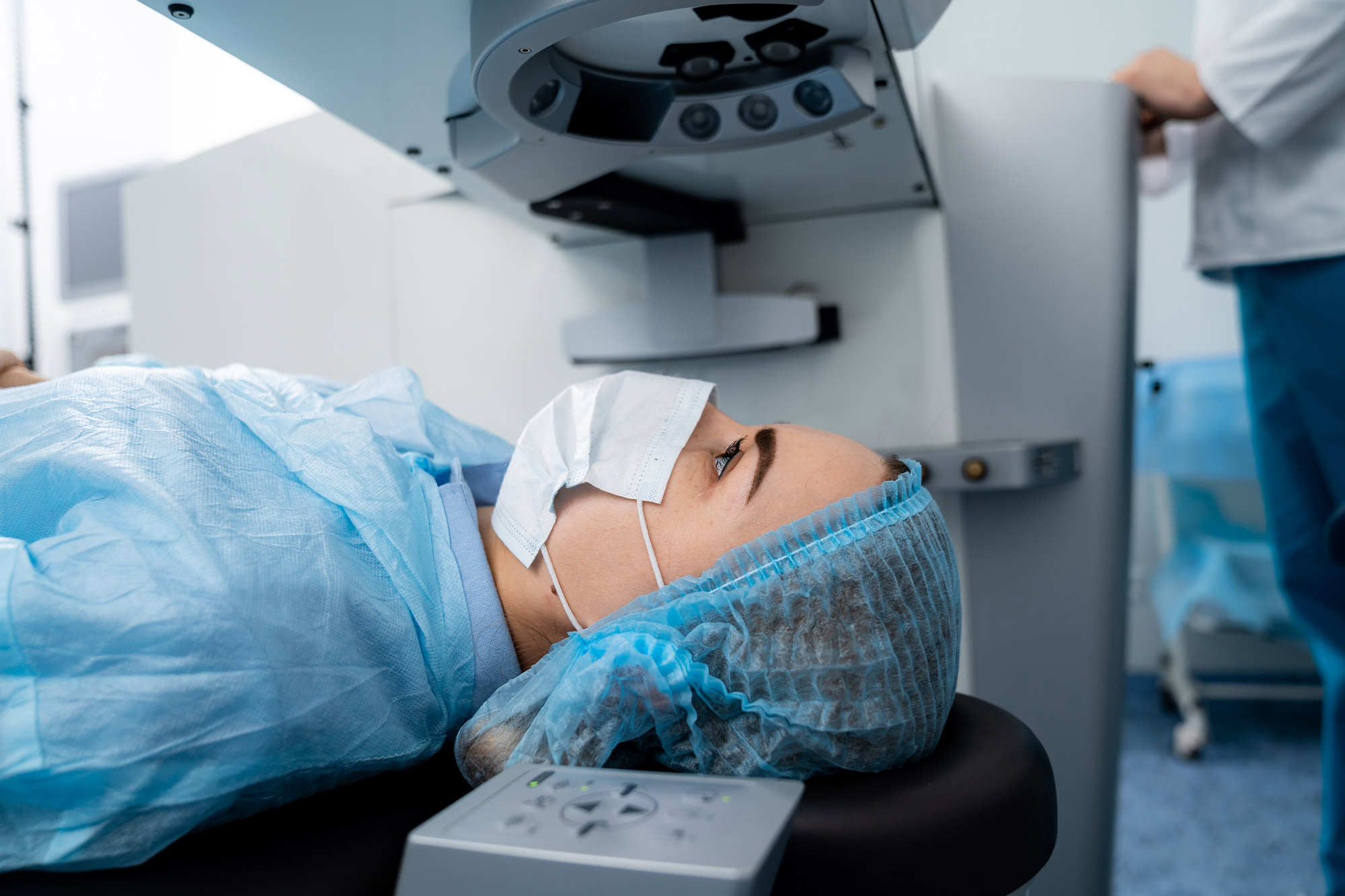Preparing for cataract surgery begins way before you enter the doctor’s office on the day of the procedure. Once you’ve chosen your surgeon, then you’re naturally going to have an awful lot of queries.
However, who hasn’t had a medical consultation that, after leaving, suddenly thought of loads of things you should’ve asked?
The easiest way to overcome this is to prepare your cataract surgery questions beforehand. While many of these will be particular to your needs, there are many FAQs that everyone will have. Going to see your cataract doctor armed with a list will ensure that you get the most comprehensive information—and don’t have that, “Oh, I forgot to ask…” feeling afterward.
What to Ask Your Eye Surgeon about Your Upcoming Cataract Surgery
We’ll split these into two parts: the first includes questions that will apply to anyone having cataract surgery, and the second batch is for those with more complex medical requirements.
Cataract surgery prep FAQs for everyone
You may well already know the answers to some of these, but we’ve included them to ensure a comprehensive list.
- Why do I need cataract surgery? The short answer is that, without surgery, your vision will continue to degrade and potentially cause blindness. Cataracts are the leading cause of vision loss in the world—but this is completely preventable with cataract surgery.
- How will it help my vision? Removing the diseased lens allows light to travel correctly through the eye again. This means distortion, like blurring, clouding, yellowing, and ever-increasing prescriptions, should be dramatically improved.
- What do I need to do beforehand? You’ll attend a pre-operative appointment where you’ll be given all the information. But briefly, you’ll probably have to fast about 12 hours beforehand, potentially adjust any regular medication, arrange for someone to bring you home afterward, and have a person with you for a minimum of 24 hours.
- How long will the operation take? Most operations take around 30 minutes, with most of this involving getting you prepped. The actual procedure only takes a few minutes.
- Will I have a general anesthetic? Very unlikely. Most procedures are done under local anesthetic. However, if you’re particularly worried, your surgeon may offer light sedation to help.
- What type of lens will I have? This will be discussed in depth as there are many different types. Premium lenses, which are all of them apart from monofocal lenses, require a procedure known as laser-assisted cataract surgery. Premium lenses also have an additional cost.
- Do I need to stay overnight? No, not usually. You’ll go home the same day.
- What can and can’t I do in the days and weeks after surgery? You’ll need to wear an eye patch for the first few days and apply eye drops. It’s essential to give the area time to heal, which means no lifting anything (no, not even a kettle or coffee pot) for the first couple of days. Full recovery takes up to 8 weeks, during which time your surgeon will advise how you can gradually increase activities.
- What are the risks? Cataract surgery is extremely safe with minimal risks, which your surgeon will discuss. They include bleeding and infection, but you’ll be given clear instructions on what to do should you be concerned.
- Will I need glasses afterward? This will depend on the lens that you have fitted.
- What if something goes wrong? Surgeons have clear pathways to follow should there be an unexpected complication. Rest assured that any issues are usually minor and can be easily dealt with.
Cataract surgery prep FAQs for those with pre-existing medical conditions
Some medical and/or anatomical conditions can make cataract surgery more complex. In such cases, you’ll most likely have your operation performed by a specialist ophthalmologic cataract surgeon who’ll be highly experienced with treating your clinical needs.
Additional questions you’ll want to ask include:
- What are the potential complications of cataract surgery with my condition? This will be driven by your needs. Your surgeon will discuss what to watch out for and how to contact them if you have concerns.
- Is the recovery period longer? Potentially yes, because some medical conditions and/or regular medications can slow the natural healing process.
- What kind of intraocular lens will I have? Certain conditions and eye anatomy can prevent the use of some premium lenses. Again, your surgeon will discuss this in full.
- What if my condition worsens just before the operation? Your surgeon will communicate with you and any other specialists that you’re under (such as a glaucoma or diabetic doctor) to ensure your condition is stable and suitable for the operation to go ahead.
- Should I stop taking my medication before surgery? This will be dependent on what you take and the dose. Your surgeon/doctor will advise.
These lists are by no means exhaustive. Feel free to add more of your own questions to ensure you’re up to speed and comfortable with your upcoming surgery.
Discover more helpful information at https://www.bestcataractsurgeonreviews.com/
